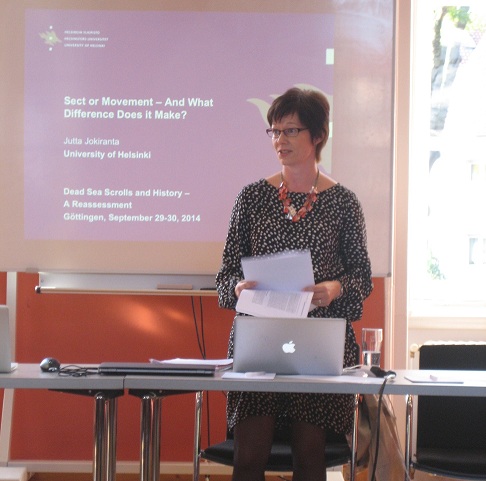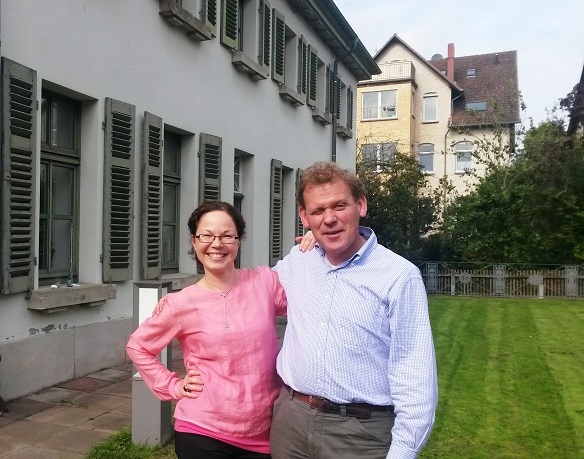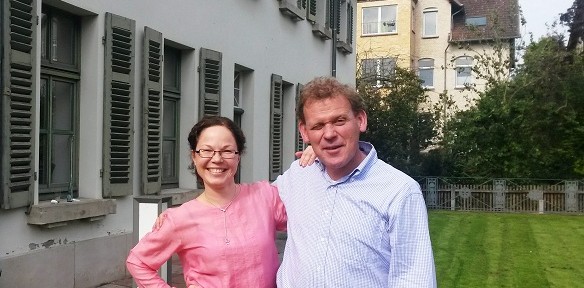by Katri Antin
Several European universities foster the study of the Dead Sea Scrolls and train doctoral students to become experts in the Scrolls. In September 2014, both junior and senior scholars from the universities of Helsinki, KU Leuven, Groningen and Manchester were kindly invited to the Georg-August-Universität Göttingen to a workshop titled Dead Sea Scrolls and History — A Reassessment.

Dr. Jutta Jokiranta, a team leader of team 4 of the CSTT, encouraged the participants to think and re-think the history and nature of the Qumran movement in light of different theories concerning (religious) sects and movements. Also, several papers highlighted the complex nature of the source texts and the difficulties in getting access to historical knowledge. Due to the luxury for having 1,5 hours for each paper, the participants had the time to touch upon many questions concerning methodology and scholarly preconceptions.
In fact, the theme of the workshop was found so challenging that the participants decided to continue working on the theme together. Dr. Jokiranta invited the network to Helsinki in fall 2015.


